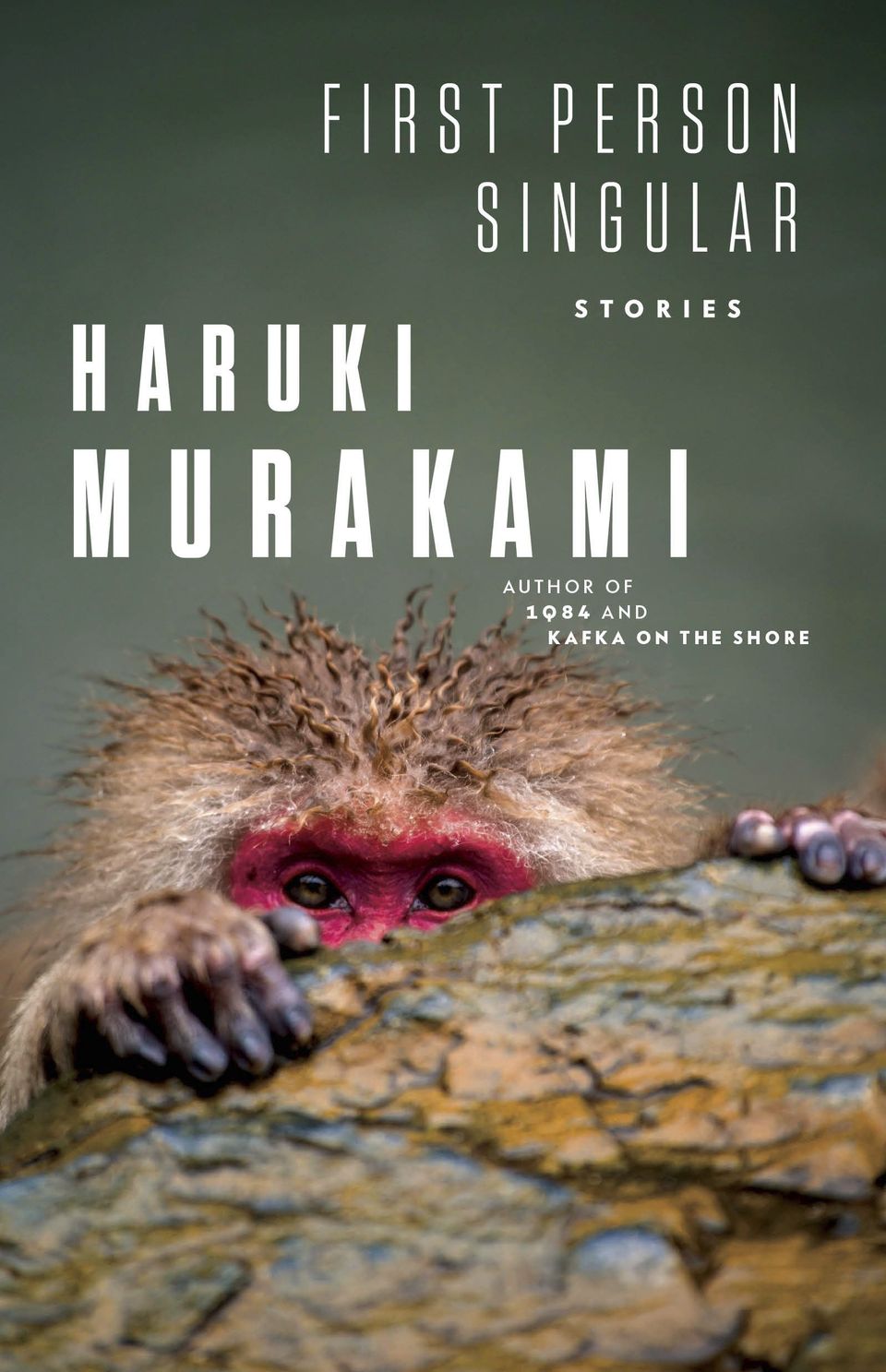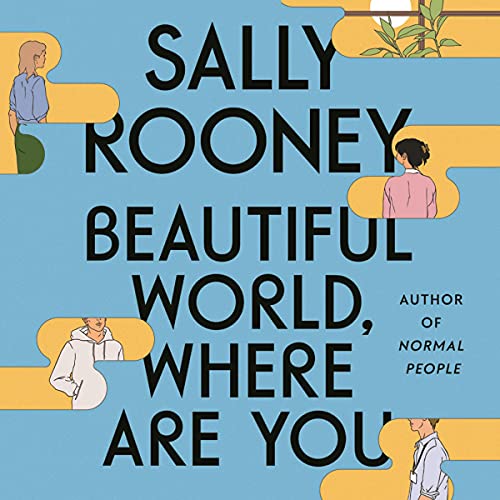The Shinagawa Monkey and a Bookshelf

When reading or writing, must there always be a theme? I personally thought so, that is, until I read Confessions of a Shinagawa Monkey, a chapter in Haruki Murakami's book of short stories titled, First Person Singular.
In summary, Confessions of a Shinagawa Monkey is the story about the night Murakami met an elderly talking monkey. After traveling by train, Murakami arrives at a small hot springs town to stay the night. Because of his late arrival, many inns turn him down, all except one rustic and decrepit inn located outside of town. The small Japanese-style lodging is in complete disarray. Not only is it devoid of any antique charm, but the inn is also furnished with slanted and mismatching pieces and lit ominously by dim lights. Murakami describes his small room and lukewarm soba dinner but recalls complaining little as he has a full stomach and a roof above his head for the night.
It is during his surprisingly pleasant hot springs bath when he meets the monkey. As Murakami soaks in the bath a low voice says, "Excuse me" and asks him how the bath is. To his utter surprise, Murakami locates the voice and finds a monkey straightening buckets strewn around. Despite his confusion, Murakami responds, "It's very nice. Thank you." What is a monkey doing here and why is he speaking in a human language? Murakami thinks to himself.
"Shall I scrub your back for you?" the monkey asks in a baritone voice to which Murakami politely accepts. As Murakami bathes, the monkey tells his story.
The monkey, with no name, but referred by many as the Shinagawa Monkey, was raised by a professor in Tokyo. The professor taught him to speak and shared with him a love for music, particularly Bruckner and Strauss.
Murakami, still eager, wraps up his bath and invites the Shinagawa monkey for some cold beers later that night. The monkey obliges and they agree upon meeting at Murakami's room at 10.
When 10 arrives, the unlikely pair share some beers and bar snacks. The two discuss the monkey's life story in greater detail. The monkey tells Murakami of his struggles growing up, feeling neither monkey nor human and the consequential heartrending isolation.
The isolation is further magnified by the monkey's relations with females. The Shinagawa monkey explains, "I didn't feel a speck of sexual desire for female monkeys... Before I knew it, I could only love human females." Unfortunately, a woman would never love a monkey, so the Shinagawa monkey tells Murakami how he addresses his desires by stealing women's names. He does so by stealing an ID of sorts, concentrating his willpower and emotion on the name, and pulling a fragment of her name until "a part of the woman becomes part of [him]." The consequence of this act is that the woman's name becomes "lighter" like when "the sun clouds over and your shadow on the ground gets much paler". For the woman, she may forget her name or suffer an identity crisis, and for the monkey, he gets to possess a great love for the new name within him. Murakami and the monkey agree that it may be the ultimate form of romantic love and "the ultimate form of loneliness."
The short story concludes with Shinagawa monkey thanking Murakami for the beers and, his kindness and time. The following morning, there is no trace of the monkey or the beers from the previous night. Murakami questions his encounter with the Shinagawa monkey and it is after several years does he receive coincidental evidence that the odd inn worker was real.
Murakami's story is compelling because you could replace the Shinagawa monkey with a man or woman and not question its validity. Naturally, a speaking inn monkey permits some skepticism. Maybe it is an allegory about unrequited love painted masterfully with magical realism. Or maybe, like Murakami claims, there is no theme and "[the story] is just about an old monkey who speaks human language, in a tiny town in Gunma Prefecture, who scrubs guests' backs in the hot springs, enjoys cold beer, falls in love with human women, and steals their names."
The (less interesting) story of how I stumbled upon Haruki Murakami's novel begins in the Twig Book Shop in San Antonio. As I'm browsing the store, in the employee’s recommendation section, I see Piranesi by Susanna Clarke recommended by a woman who's name I can't recall. I recently finished Piranesi, a fantasy novel about a man stuck in a labyrinth and didn't understand the point. Curious to hear another opinion, I ask a bookstore clerk if the woman was in today. The man, who was likely in his late 40's or early 50's, politely tells me she isn't in today and asked what I need help with. I tell him about Piranesi and with a unhurried and careful cadence, as if he dutifully inspects every word he says, replies that everyone in the bookstore has different tastes.
He straightens up, works his way around the checkout table and asks me what genres I like to read. I tell him I read mostly contemporary fiction and science non-fiction but would love to expand my literary palate. The clerk walks me to a nearby shelf and asks me if I'm familiar with a few authors, to all of which I reply no to. He then spews more authors and book names that I feverishly attempt to memorize.
Now, his speech is more rapid but no less careful. The clerk tells me about an author and their notable works and swiftly points to the book on the shelf. One of those authors is Haruki Murakami. The clerk tells me he is a world-renowned Japanese writer known best for his whimsical and mystical story telling. I pluck Killing Commendatore (also by Murakami) off the shelf and listen attentively to the clerk.
We converse a bit longer and I learn he is a former professor but he is now working on a memoir. Eventually, he apologetically tells me he has to return to work. So, I thank him profusely and replace Killing Commendatore snuggly between its neighbors. He wishes me good luck and retreats back behind the checkout table while I step towards the indie bookshelf.
Suddenly, I encounter the strangest feeling as I lift my head to browse the shelf. Other than two books (The Anthropocene Reviewed by John Green and Crying in H Mart by Michelle Zauner), I'm unfamiliar with the titles and authors on the shelf. In that moment, I truly begin to realize that despite my (self-proclaimed) copious amount of reading, I haven't even touched the surface of the literary world. On cue, a wave of awe ripples beneath my skin and I'm certain my eyes dilate two-fold. For a moment, I let my eyes settle unfocused on the shelf and I take in every book and all I've yet to discover. The ripples intensify and stream toward my face where they eventually slow and settle as rhythmic hum.
I gaze at the shelf and think to myself, I want to read it all. Every foreign world, fiction or not, I need to explore them all. Every masterful written creation, I need to experience it all. And every author and their work, I need to know them all.
The feeling subsides after no more than 15 seconds and along with awe I'm left with a subtle sadness. Sadness over the fact that I want to read it all, but I know I can't. Like the Shinagawa monkey who loves what he cannot have, I steal names. I steal parts of the literary world and make them my own. With all my willpower and emotion, I hold on to the few books that I can and cherish them deep in my heart.
Like Murakami's story you can choose to believe me or not. You can believe that this is how I felt when I was first introduced to Murakami or believe I simply found his work on the shelf. Truthfully, it wasn't Murakami's book in my hand that led to the feeling since I held many others as I followed the clerk's recommendations. I also was not particularly moved by the front flap summary. However, that is the story of how Murakami and by virtue, the Shinagawa monkey came into my life.
Despite my previous blog post about truth in social media, I don't necessarily disbelieve in the Shinagawa monkey. Murakami claims that there is no theme and if true, then who am I to contest the man's memory? I've always seen reading as either informative or entertaining. Now, I believe there is more. Reading is an experience, and in the few but glorious times, a transformative one too.
Since that day, the mahogany indie bookshelf remains in clear mental detail. I can't remember what color shirt the clerk was wearing or what shoes I had on (I admit, my memory is terrible). But I can vividly remember the bookshelf and the worlds it held for me to discover. I can also picture the shelf in magical realist detail. In its true form, the shelf is a single branch of an infinite sequoia tree. Every branch furcates into unique worlds, each of which spawn ideas of their own. As I'm writing this, I'm holding on to one branch, cherishing it deep in my heart, and seeing where it takes me.
Thanks for reading! If you liked it, please share it with a friend! If you didn't, I'm sorry. :(
Email me (openthoughtblog@gmail.com) and let me know how I did or if you have any critiques, comments or recommendations. If you liked this or any other post, please consider subscribing. :)





Member discussion